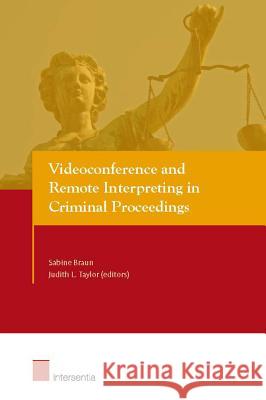Videoconference and Remote Interpreting in Criminal Proceedings » książka
Videoconference and Remote Interpreting in Criminal Proceedings
ISBN-13: 9781780680972 / Angielski / Miękka / 2012 / 328 str.
In response to increasing mobility and migration in Europe, the European Directive 2010/64/EU - on strengthening the rights to interpretation and translation in criminal proceedings - has highlighted the importance of quality in legal translation and interpreting. At the same time, the economic situation is putting pressure on public services and translation/interpreting service providers alike, jeopardizing quality standards and fair access to justice. With regard to interpreting, the use of videoconference technology is now being widely considered as a potential solution for gaining cost-effective and timely access to qualified legal interpreters. However, this gives rise to many questions, including: how technological mediation through videoconferencing affects the quality of interpreting; how this is related to the actual videoconference setting and the distribution of participants; and, ultimately, whether the different forms of video-mediated interpreting are sufficiently reliable for legal communication. It is against this backdrop that the AVIDICUS Project (2008-11), co-funded by the European Commission's Directorate-General Justice, set out to research the quality and viability of video-mediated interpreting in criminal proceedings. This book, which is based on the final AVIDICUS Symposium in 2011, presents a cross-section of the findings from AVIDICUS and complementary research initiatives, as well as recommendations for judicial services, legal practitioners, police officers, and legal interpreters.











